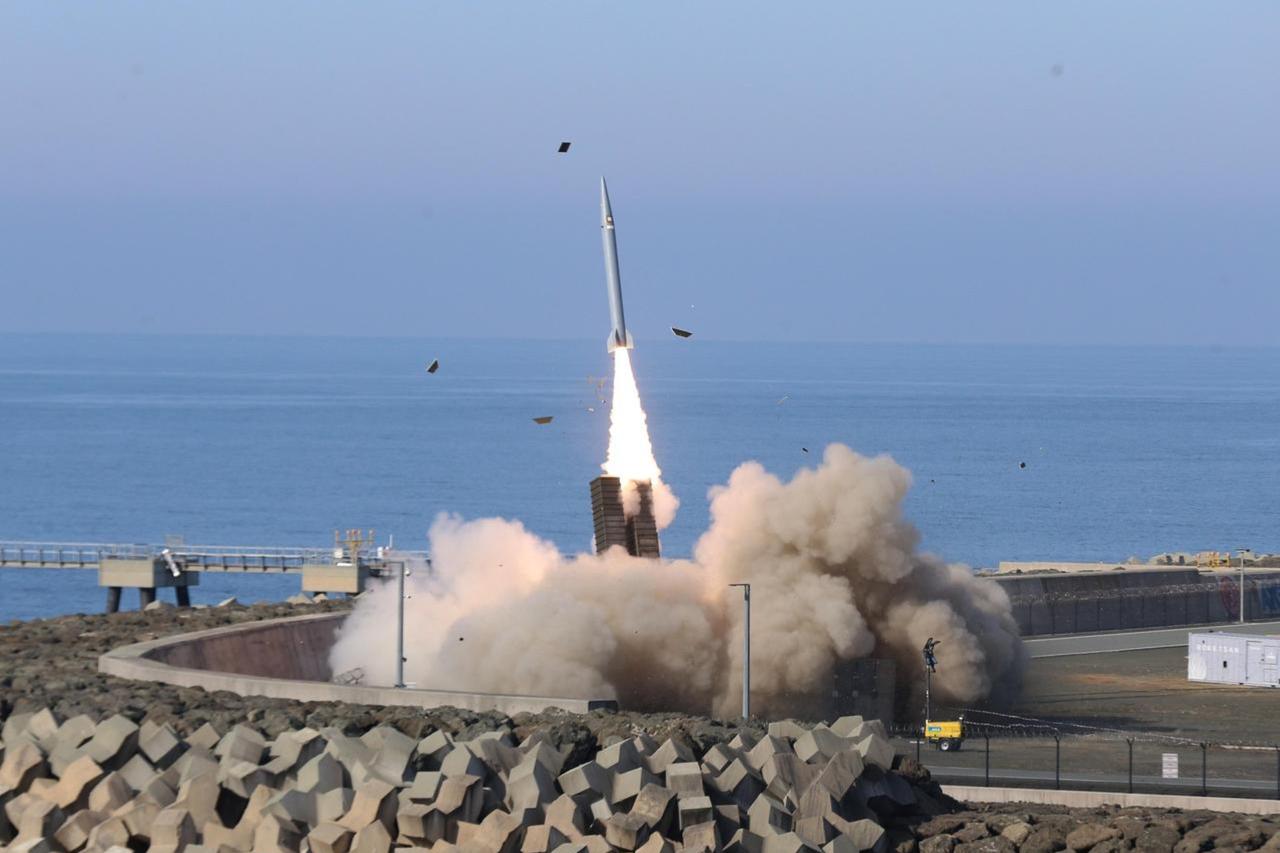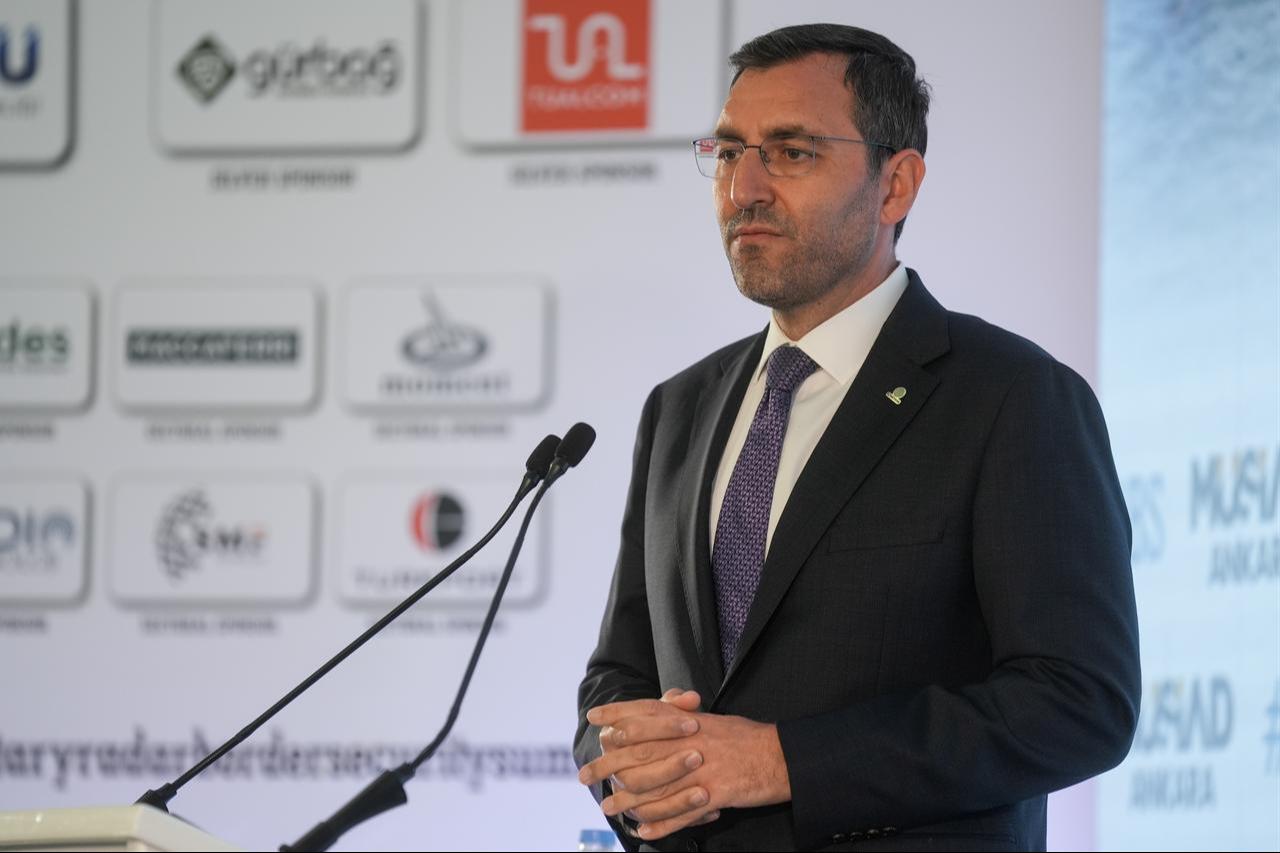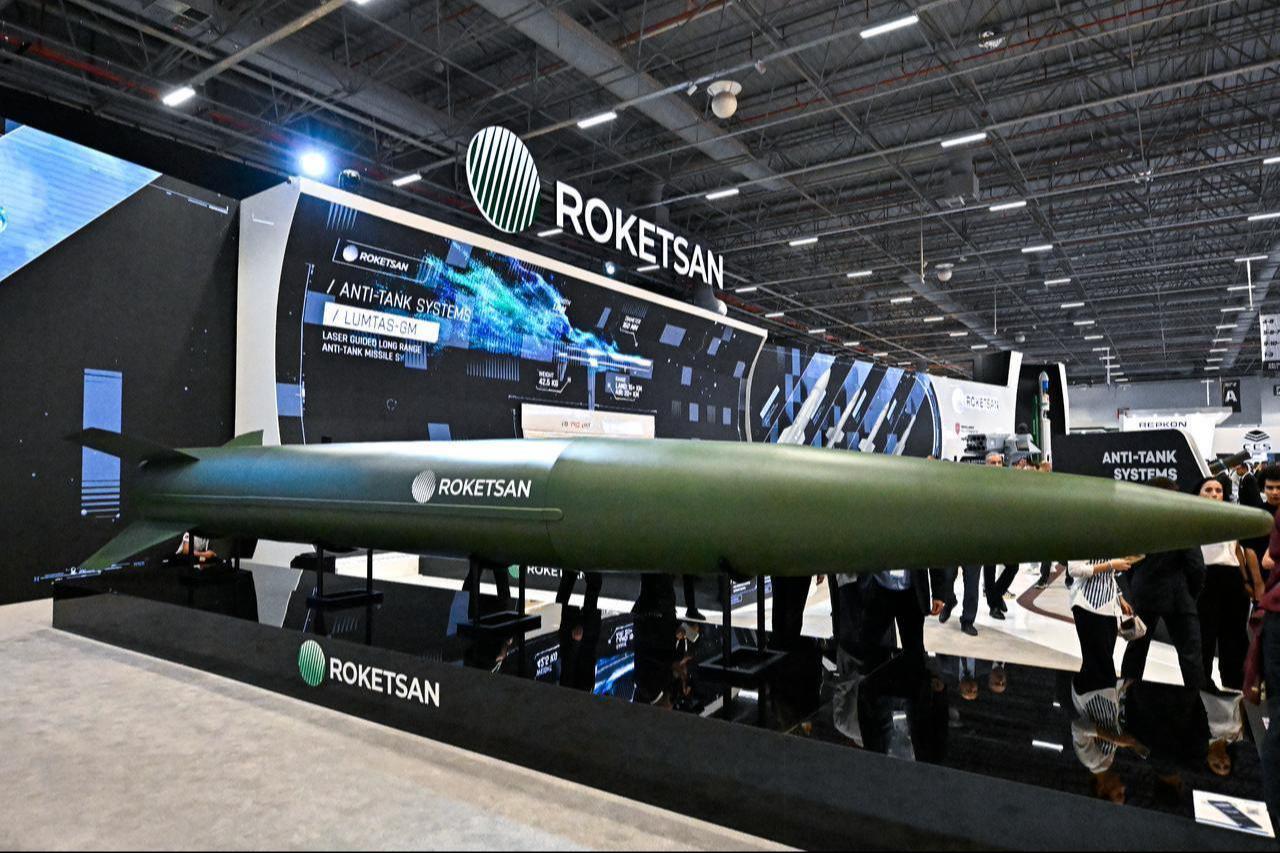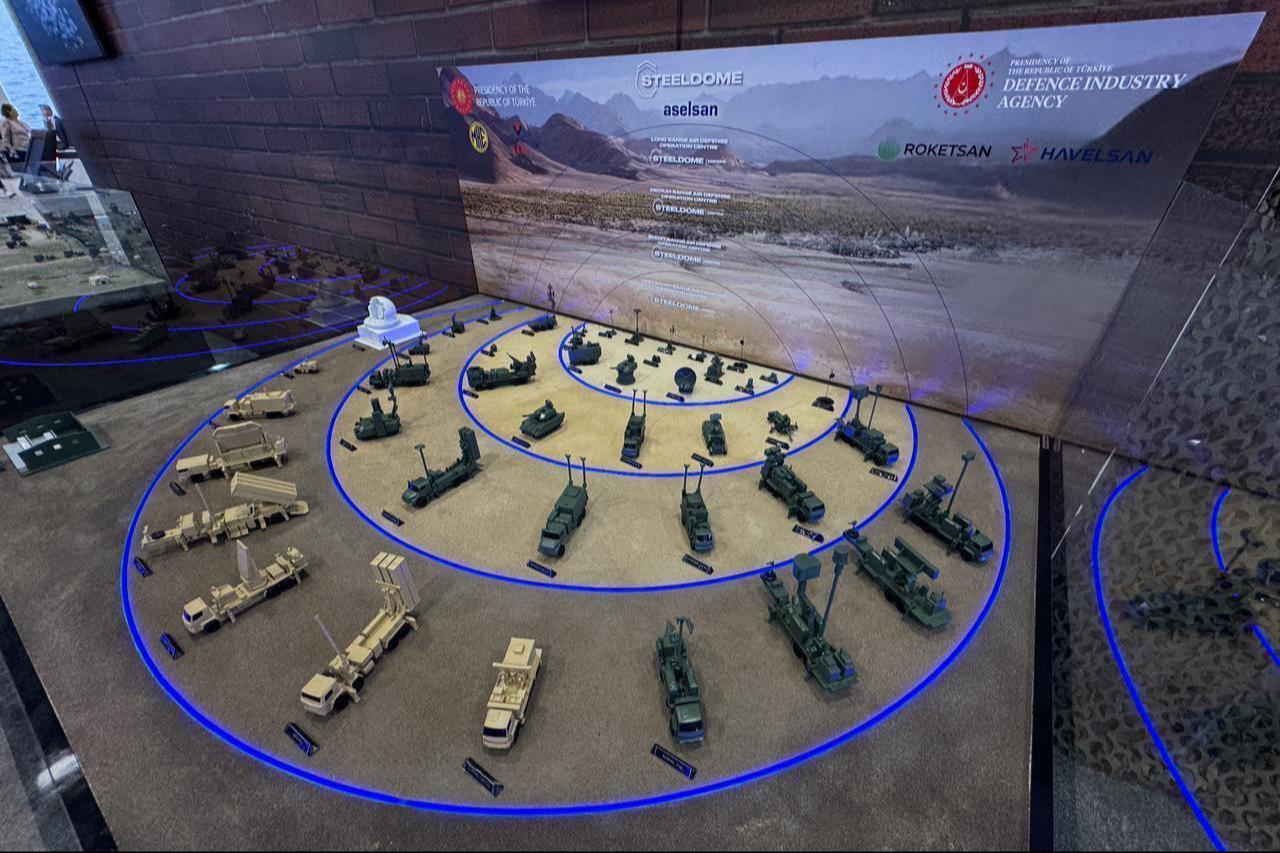
The Tayfun Block-4 hypersonic missile showcases the advanced stage of Türkiye’s defense industry, Roketsan General Manager Murat Ikinci said, stressing the importance of further developing capabilities in fuel, explosives, guidance, signal intelligence, sensors, data fusion, and nanotechnology.
"Having a hypersonic missile brings serious deterrence, and being able to produce this technology with domestic means shows where we have reached in the defense industry," Ikinci said.
"We need to develop our capabilities in areas such as fuel, explosives, guidance, signal intelligence, sensors, fusion and nanotechnology," he noted.
Ikinci made the remarks at the fifth Military Radar and Border Security Summit hosted by the Ankara branch of the Independent Industrialists' and Businessmen's Association at Hacettepe University Beytepe Congress Center with support from the Interior Ministry, National Defense Ministry and Presidency of Defense Industries (SSB).

Ikinci drew attention to Türkiye's strategic position in the defense industry at a time when security balances in the world are rapidly changing.
He emphasized that the Turkish defense industry has now reached a level where it can meet almost all system and platform needs of the Turkish Armed Forces.
"A country that can produce its own weapons, missiles and radars becomes able to determine its own security destiny," Ikinci said, adding, "This is the crossing of the most critical threshold on the road to full independence."
Ikinci emphasized three main technology areas that will have a profound impact on the defense sector over the next 10-15 years.
"Artificial intelligence, hypersonic technologies, meaning defense solutions against systems moving at Mach 5 and above speeds, and space and sensor technologies, which are the future of surveillance, communication and laser-based systems," Ikinci said.
"These three areas will create a paradigm shift in defense technologies. We are making intense efforts to increase our domestic production capability, especially in sensor and laser technologies," he added.
Pointing to the role of space technologies and sensor technologies, Ikinci said that missiles may not perform their missions effectively if they do not have sufficiently good sensors.
"We need to work on and develop sensors and their sub-technologies, such as laser, RF technologies, wave technologies, infrared detectors much more," he said.
Ikinci noted that Western countries impose open and covert embargoes on Türkiye, stating, "When it comes to rockets and missiles, this issue goes to even higher perceptions."
"Roketsan is one of the institutions facing the most restrictions on this issue. But we are also one of the companies that has taken localization and nationalization activities to the highest level," he noted.
Explaining that the Tayfun Block 4 hypersonic missile system introduced at IDEF 2025 was designed to meet the long-range needs of the Turkish Land Forces domestically, Ikinci said that having a hypersonic missile brings serious deterrence, and being able to produce it with domestic means demonstrates the progress of the defense industry.

Ikinci provided detailed information about Türkiye's "Steel Dome" air defense system, saying this system creates a multi-layered structure covering land, sea and air elements. "Steel Dome is an integrated defense network consisting of radars, sensors, aircraft, naval platforms and missiles."
"This system was designed to protect not only land defense but also maritime and airspace simultaneously. Türkiye is one of the few countries to implement such a system," Ikinci noted, adding that the artificial intelligence-based decision support systems play a key role in the project carried out through joint work of institutions such as Aselsan, Roketsan, TUBITAK SAGE and MKE.
"At the core of this system is a reaction capacity that goes beyond human speed," Ikinci said.
"It is not possible to manage thousands of radar traces, target data and missile routes instantly by hand. Processes such as target prioritization, recognition, threat assessment and selection of the most appropriate countermeasure are carried out with artificial intelligence algorithms," he added, noting, "This technology dramatically increases the neutralization rate by reducing the decision time in air defense to milliseconds."

Ikinci emphasized that, in the process of developing these technologies, artificial intelligence has become a central component of the system, not an additional tool in defense technologies, "Artificial intelligence is not just a mechanism that analyzes data, but an intelligence that optimizes the communication established between the radar, the missile, the command control center and even the ammunition."
"Now the soldier in the field, the pilot in the aircraft or the radar operator is not acting alone, but with the support of a huge digital intelligence behind them. For us too, artificial intelligence is not software to be imported, but a strategic capability trained nationally," Ikinci concluded.